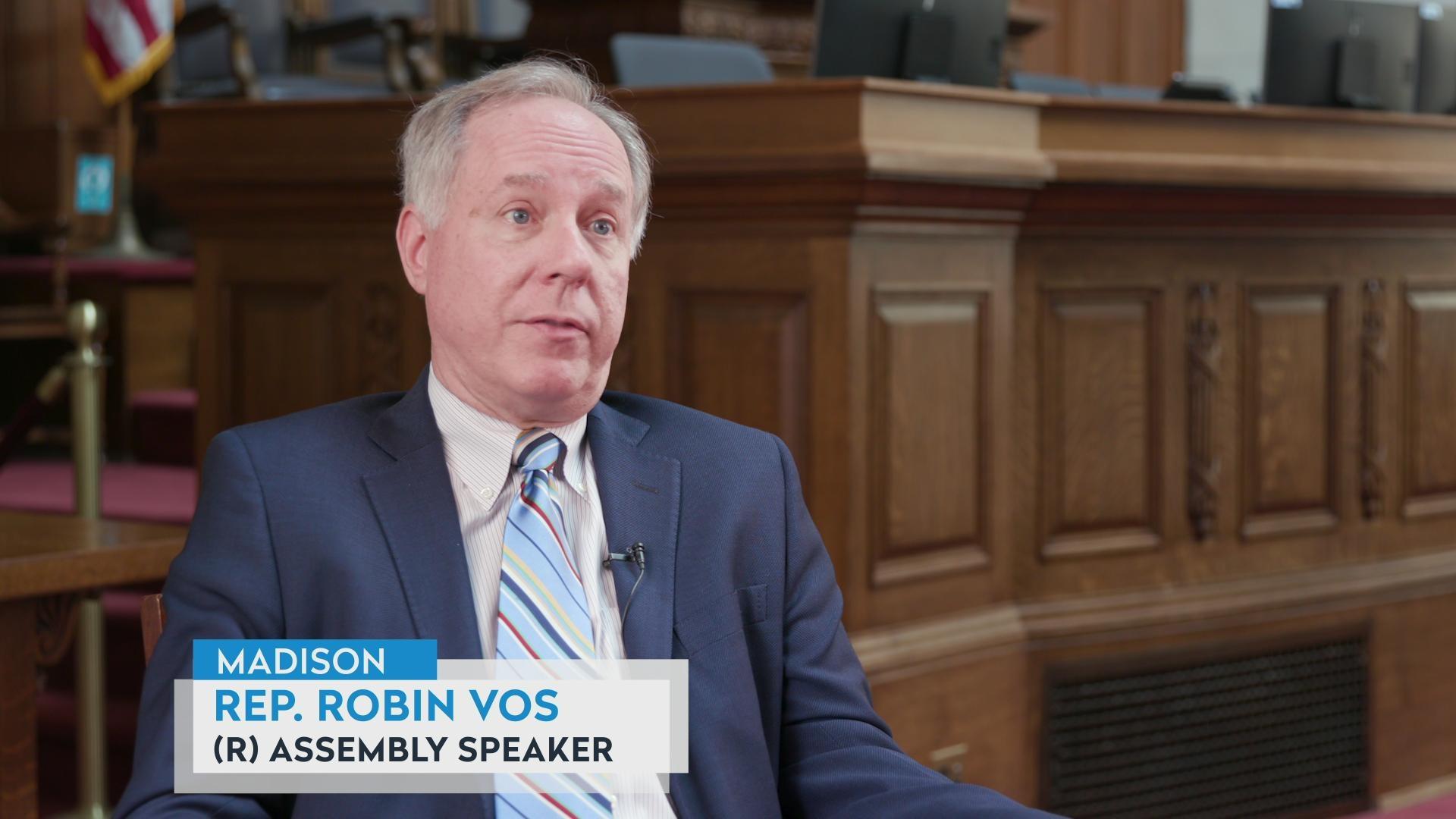Frederica Freyberg:
We’re joined by Rich Halverson, professor at the UW-Madison School of Education, for more on how reading is taught. Thanks very much for being here.
Rich Halverson:
Thank you for having me.
Frederica Freyberg:
So if we need a legislative bill to reintroduce phonics, what happened to it? When did it fade from fashion?
Rich Halverson:
Well, I don’t think it’s ever really faded from fashion. It’s always been a part of literacy instruction. I think what happened is during the COVID time, there’s part of learning to read and teaching reading that’s pretty technical that requires a lot of skill on the part of teachers and then there’s part that relies on usage and having kids be able to express themselves, and I think that’s exactly what happened during the COVID time is that the technical parts of reading that require a lot of one-on-one interaction between teachers and young readers, that’s what fell apart, and I think we’re seeing that in our test scores and I think the focus on bringing phonics back to the forefront of our instructional program is really important.
Frederica Freyberg:
So which is better? What’s called this science of reading or phonics or the technical aspects, as you regard it? Or balanced literacy, something I’ve read about, which perhaps has less emphasis on phonics?
Rich Halverson:
Well, I think it’s important to understand that reading is part of becoming a literate person. So in order to be literate in society, you have to learn to decode, you have to have vocabulary, you have to be able to interact with folks, and part of the learning to read part is that technical aspect of understanding letter patterns, understanding how they fit together, understanding vocabulary. I think of this a lot like with learning to drive. So some young people come to their driving lessons, they already know how to drive. What they need is practice but some people really rely on the technical skills that driving instructors give in order to learn the rules of the road, to learn how to interact with other drivers, and that’s I think the role that phonics plays in our reading curriculum.
Frederica Freyberg:
And you’ve said that people who have learned to read with these technical skills, phonics, test better.
Rich Halverson:
Well, the tests that we have are — that we hold as important are third grade reading tests. They really focus on the kinds of skills that phonics teaches. There’s a transition that happens in literacy from learning to read to reading to learn, and that happens around the fourth or fifth grade, where then you take your technical skills and you use them to explore other domains, and what we really need is young people who can master those technical skills so they can go on to apply their reading skills to become more literate folks.
Frederica Freyberg:
Because if you can’t read because you haven’t learned those technical skills, you kind of can’t develop a love of reading, which is what people are looking for. Right?
Rich Halverson:
I think that’s right. I think the driving analogy is really perfect here. Like you can learn the rules of the road down the road, so to speak, by driving and then mistaking mistakes, but it’s better to have as a sense of how things are constructed on the road, what is good behavior on the road, and I think that’s what the basic skills for reading really help young people develop.
Frederica Freyberg:
And so if you are a kindergartener or a first grader and you are being taught with phonics these technical skills, I think you called it decoding, is it singular to that? Or is other stuff kind of introduced at the same time to develop this kind of broader range of literacy.
Rich Halverson:
Well, most people who talk about the science of reading, there’s nine different parts of it. There’s vocabulary development, there’s pattern recognition, there’s symbol decoding and then there’s usage and then there’s the prior knowledge that you bring to your ability to interact with other people, and I think in kindergarten and in first grade, the science of reading approach really focuses on some of those more technical skills to prepare young people for the usage-based skills, comprehension-based skills.
Frederica Freyberg:
And are we saying that now that has fallen off the table for teachers because of the pandemic?
Rich Halverson:
I think that the idea of balanced literacy is important for a school. A school needs to have instructors that can really work on the technical skills with young people, but also really work on usage and developing a love of reading, and so you have to have a school that has skill in all those areas, and I think what this bill does is it brings resources into schools to bolster their ability to prepare teachers to use those technical schools with young people.
Frederica Freyberg:
Looking at Wisconsin test scores, there are major gaps between white and Black students. How are those gaps, though, about more than how reading is taught in grade school?
Rich Halverson:
Well, reading is a core aspect of the skills that are important on standardized tests. If you can’t interpret and decode the test, it’s very difficult to do — have an effective result so it’s really important that all of the children in Wisconsin acquire those basic reading skills. However, the tests are one measure of how young people interact in the world. There’s their ability to make things, their ability to express themselves, their ability to engage in political discourse, in interaction with one another. All of those are important indicators as well. So I think while it’s important for us to look at the test scores, we have to be careful to not exclusively focus on test scores and test core gaps when we measure the success of education. An important thing to remember here is that test scores largely reflect socioeconomic status. So they reflect the skills and the abilities to participate in school that young people bring into the school and so we have to also think about how our schools help kids who don’t have those skills coming in to acquire them so they can be successful in schools.
Frederica Freyberg:
Rich Halverson, thanks very much.
Rich Halverson:
Thank you.
Search Episodes
News Stories from PBS Wisconsin

Donate to sign up. Activate and sign in to Passport. It's that easy to help PBS Wisconsin serve your community through media that educates, inspires, and entertains.
Make your membership gift today
Only for new users: Activate Passport using your code or email address
Already a member?
Look up my account
Need some help? Go to FAQ or visit PBS Passport Help
Need help accessing PBS Wisconsin anywhere?

Online Access | Platform & Device Access | Cable or Satellite Access | Over-The-Air Access
Visit Access Guide
Need help accessing PBS Wisconsin anywhere?

Visit Our
Live TV Access Guide
Online AccessPlatform & Device Access
Cable or Satellite Access
Over-The-Air Access
Visit Access Guide
 Passport
Passport


















Follow Us